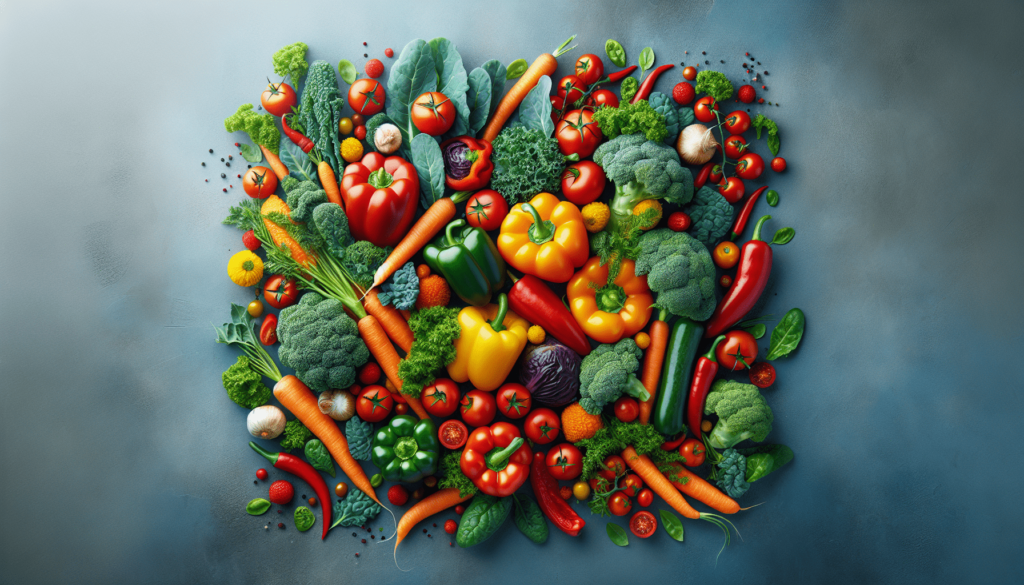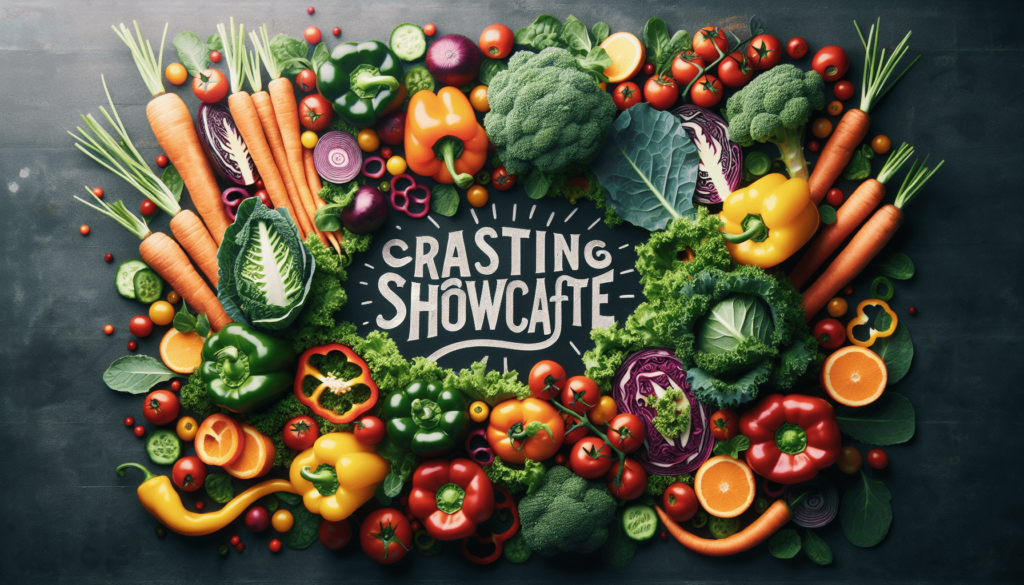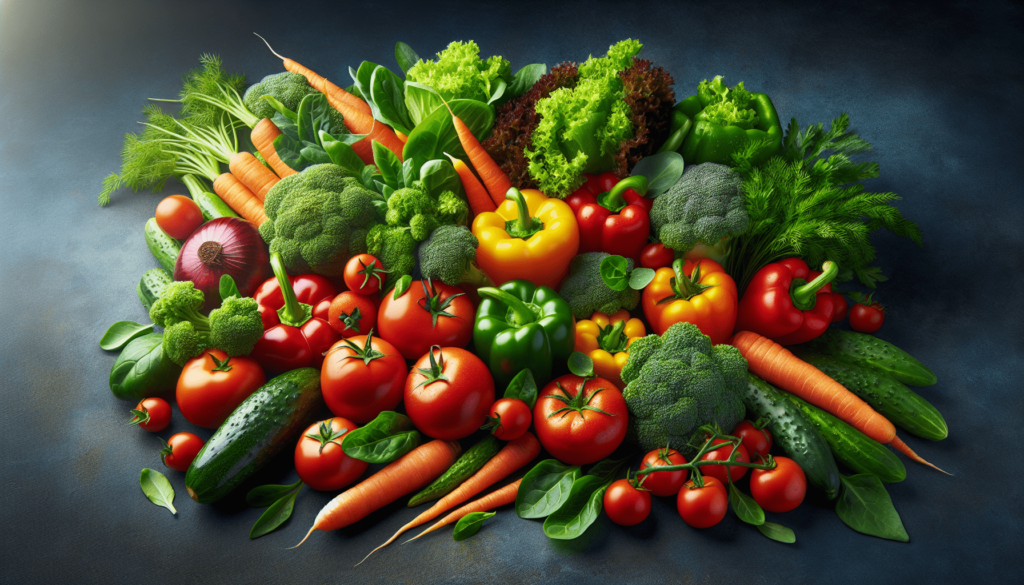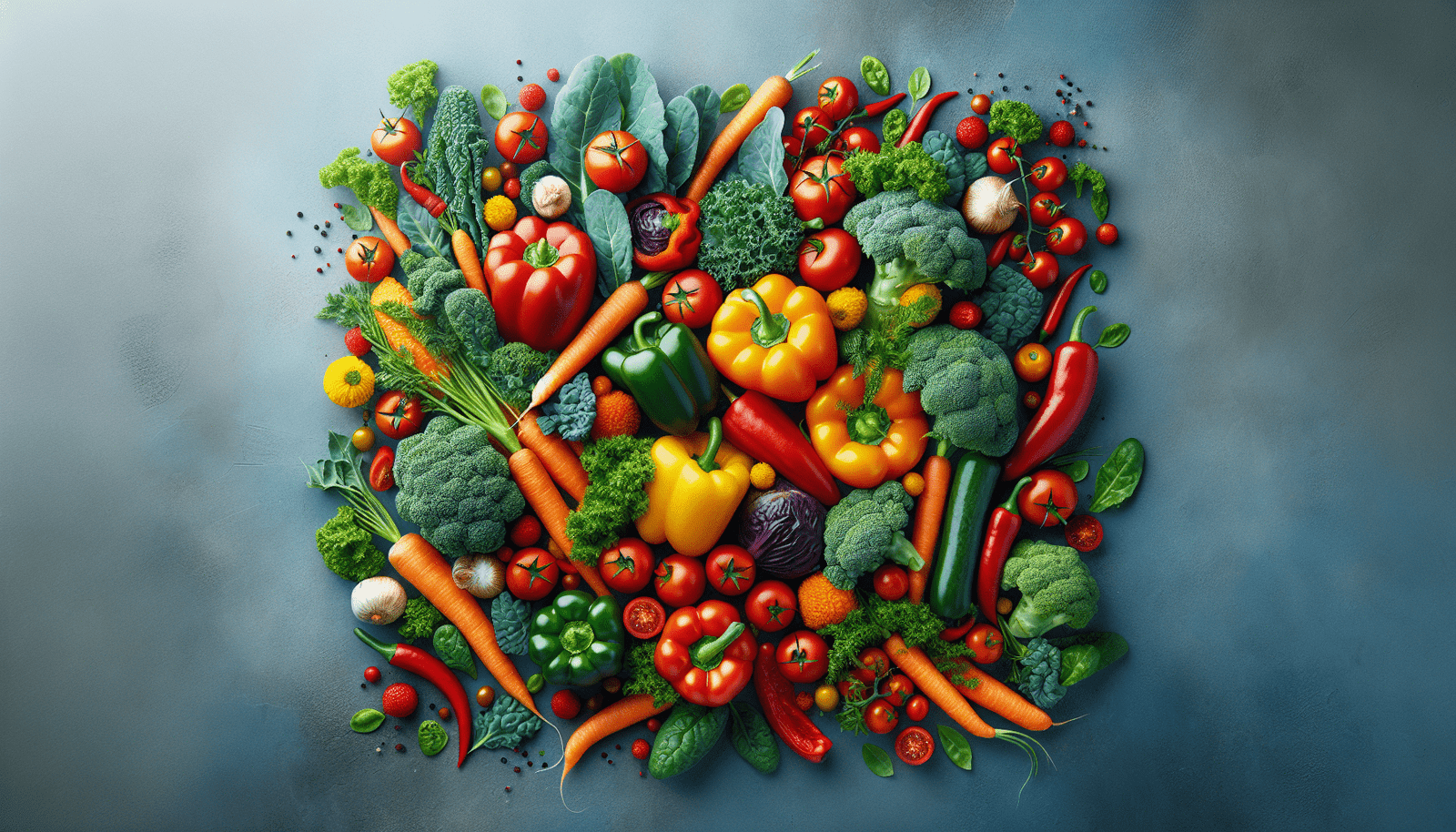Have you ever wondered how to incorporate more vegetables into your diet without sacrificing taste or convenience? In this article, you’ll discover a variety of delicious and nutritious vegetables that you should be eating more of to improve your overall health and well-being. Whether you’re a seasoned vegetable enthusiast or just starting to explore the world of plant-based eating, there’s something for everyone to enjoy. Let’s get started on our journey to a healthier you by adding more veggies to your plate!

Leafy Greens
When it comes to nutrient-dense vegetables, leafy greens are at the top of the list. From kale to spinach to arugula, these veggies are bursting with vitamins, minerals, and fiber that are essential for a healthy diet.
Leafy greens can be enjoyed in salads, smoothies, stir-fries, and soups. Experiment with different varieties to find your favorites and mix it up to keep things interesting.
Kale
Kale has become a superfood sensation in recent years, and for good reason. Packed with vitamins A, C, and K, as well as calcium and antioxidants, kale is a nutritional powerhouse that can benefit your body in many ways.
Try massaging kale with lemon juice and olive oil to soften the leaves for a delicious salad base. You can also bake kale into crispy chips or blend it into a smoothie for a nutritious boost.
Cruciferous Vegetables
Cruciferous vegetables, such as broccoli, cauliflower, and Brussels sprouts, are known for their cancer-fighting properties and high levels of vitamins and minerals. These veggies are versatile and can be enjoyed raw, steamed, roasted, or sautéed.
Cruciferous vegetables can add a unique flavor and texture to your meals while providing a hefty dose of nutrients to support your overall health.
Broccoli
Broccoli is a popular cruciferous vegetable that is rich in vitamin C, fiber, and antioxidants. It is a great addition to any meal and can be roasted with garlic and olive oil, steamed with lemon juice, or added to stir-fries for a tasty and nutritious boost.
Try incorporating broccoli into your favorite dishes to reap the health benefits and enjoy the delicious flavor it brings to the table.
Root Vegetables
Root vegetables, such as sweet potatoes, beets, and carrots, are not only delicious but also incredibly nutritious. These vegetables are high in fiber, vitamins, and minerals that can support your digestive health and immune system.
Root vegetables can be roasted, mashed, or chopped and added to soups and stews for a hearty and satisfying meal.
Sweet Potatoes
Sweet potatoes are a versatile root vegetable that can be enjoyed in both sweet and savory dishes. They are rich in vitamin A, fiber, and antioxidants, making them a nutritious addition to your diet.
Try roasting sweet potatoes with cinnamon and maple syrup for a sweet treat, or adding them to chili or curry for a savory twist. However you choose to enjoy them, sweet potatoes are sure to delight your taste buds and nourish your body.
Allium Vegetables
Allium vegetables, such as onions, garlic, and leeks, are not only flavorful but also offer a range of health benefits. These vegetables contain sulfur compounds that have been linked to reduced inflammation, improved heart health, and enhanced immune function.
Allium vegetables can be used as a base for soups and sauces, or added to stir-fries, salads, and grain bowls for added flavor and nutrition.
Garlic
Garlic is a pungent allium vegetable that is commonly used in a variety of cuisines for its distinct flavor and health benefits. It is rich in allicin, a compound that has antibacterial and antifungal properties.
Try adding minced garlic to your favorite dishes for a burst of flavor, or roast whole garlic cloves with olive oil for a creamy and delicious spread. The possibilities are endless when it comes to incorporating garlic into your meals.

Nightshade Vegetables
Nightshade vegetables, such as tomatoes, bell peppers, and eggplants, are a diverse group of plants that offer a myriad of flavors and health benefits. These vegetables are rich in vitamins, antioxidants, and fiber that can support your overall well-being.
Nightshade vegetables can be enjoyed raw, roasted, grilled, or sautéed to bring out their unique flavors and textures. Experiment with different cooking methods to find your favorite ways to enjoy these veggies.
Tomatoes
Tomatoes are a vibrant and versatile nightshade vegetable that can be used in a variety of dishes. They are rich in lycopene, a powerful antioxidant that has been linked to reduced inflammation and decreased risk of chronic diseases.
Try incorporating tomatoes into salads, sandwiches, pasta dishes, and sauces for a burst of freshness and flavor. You can also roast cherry tomatoes with balsamic vinegar and herbs for a delicious side dish or snack.
Edible Greens
Edible greens, such as seaweed, dandelion greens, and watercress, are not as commonly consumed as other vegetables but offer a unique flavor profile and a wide range of health benefits. These greens are rich in vitamins, minerals, and antioxidants that can support your body’s natural detoxification processes.
Edible greens can be enjoyed in salads, soups, smoothies, and stir-fried dishes for a nutrient-packed meal that will leave you feeling energized and satisfied.
Seaweed
Seaweed is a nutrient-dense edible green that is commonly used in Asian cuisines for its distinctive flavor and health benefits. It is rich in iodine, calcium, and vitamins A and C, which are essential for thyroid function and immune health.
Try adding dried seaweed to soups, salads, or sushi rolls for a boost of umami and a dose of essential nutrients. You can also snack on roasted seaweed sheets for a crunchy and satisfying treat.

Conclusion
Incorporating a variety of vegetables into your diet is a simple and effective way to boost your health and well-being. By adding leafy greens, cruciferous vegetables, root vegetables, allium vegetables, nightshade vegetables, and edible greens to your meals, you can provide your body with the nutrients it needs to thrive.
Experiment with different types of vegetables, cooking methods, and flavor combinations to keep things interesting and discover new favorites along the way. Whether you’re a vegetable enthusiast or just starting to explore the world of plant-based eating, there’s a vegetable for everyone to enjoy.
So next time you’re at the grocery store or farmers market, be sure to pick up some of these nutrient-dense vegetables and get creative in the kitchen. Your body will thank you for it!

